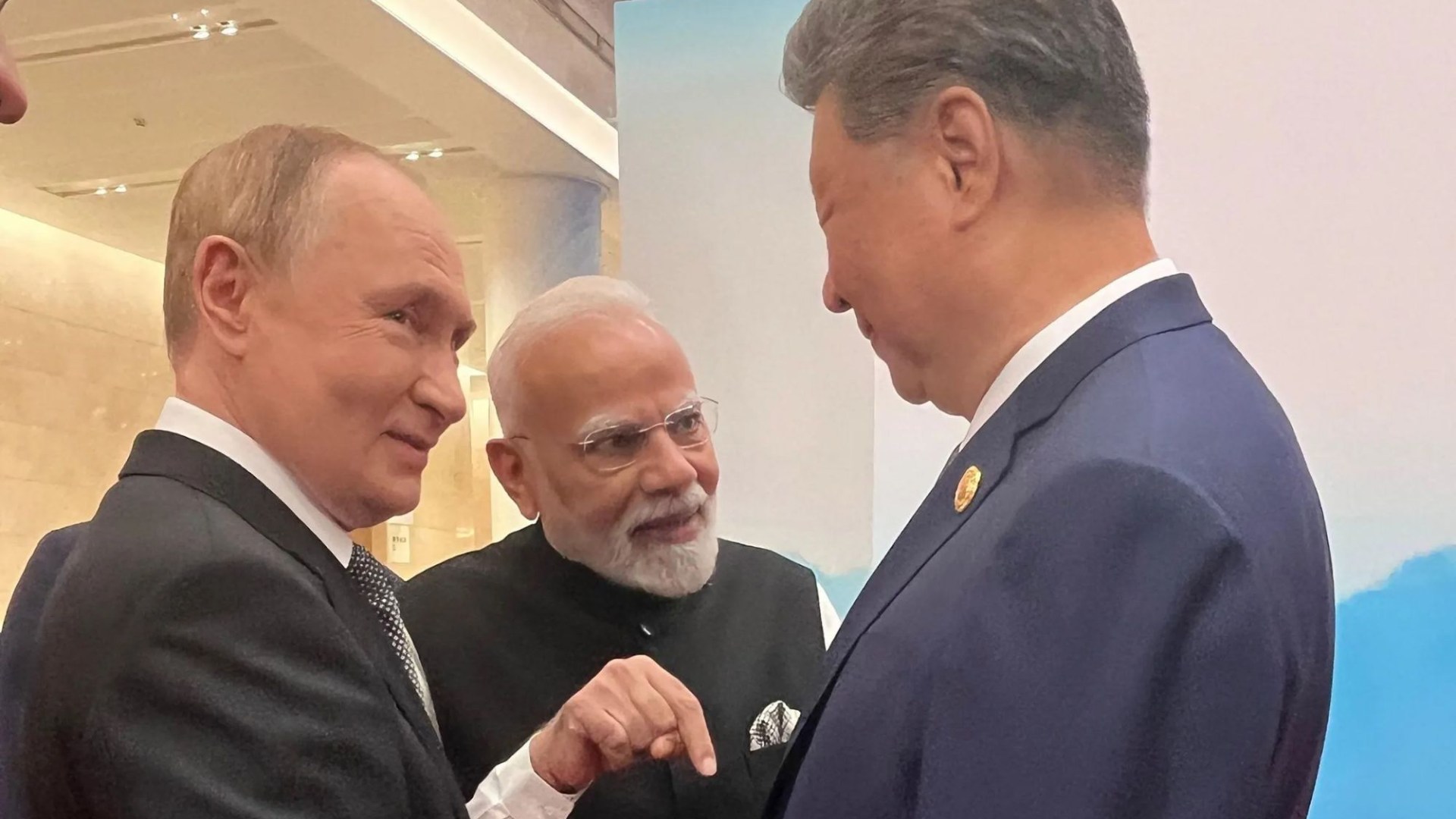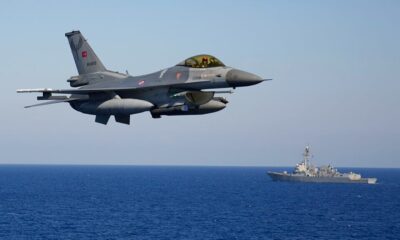Politics
Putin, Modi, and Xi Unite: A New Power Dynamic Emerges

A recent summit in China brought together three of the world’s most influential leaders: Russian President Vladimir Putin, Indian Prime Minister Narendra Modi, and Chinese President Xi Jinping. The image of this trio, captured at the Shanghai Cooperation Organisation (SCO) summit, sends a clear signal of shifting power dynamics that could have significant implications for Western nations.
The gathering in early October 2023 showcased a united front among leaders often viewed as adversaries to Western interests. Putin, facing international scrutiny for his actions in Ukraine, and Xi, the head of the world’s largest authoritarian regime, stood alongside Modi, who has been accused of increasingly authoritarian tendencies in his governance. This meeting marks a pivotal moment in international relations, raising concerns about a potential shift in global power from the West to the East.
Shifting Alliances and Military Posturing
Historically, the relationship between India and China has been strained, with both nations possessing populations of over 1.4 billion. Their rivalry encompasses territorial disputes, including a long-standing conflict over Kashmir, and military clashes along their shared border. Despite these tensions, the recent summit indicates a strategic alignment that could reshape regional dynamics.
The SCO, which also includes nations such as Belarus, Iran, and Pakistan, represents approximately 40 percent of the global population. During the summit, discussions centered on enhancing trade among member states and reducing reliance on the US dollar as a reserve currency. Notably, China aims to establish the SCO Development Bank to provide an alternative to Western financial institutions like the World Bank and the International Monetary Fund.
Military expenditures among the leaders underscore this emerging alliance, with Modi’s defense budget of approximately USD 65 billion significantly overshadowed by Xi’s USD 235 billion. Such spending signals a commitment to strengthening military capabilities amid growing global tensions.
India’s Strategic Maneuvering
Modi’s participation at the summit reflects a calculated strategy to position India as a significant player on the world stage. Despite pressure from the United States, which has sought to engage India diplomatically, Modi’s government has maintained a level of independence that resonates positively with his domestic audience.
This diplomatic balancing act allows India to cultivate relationships with both Russia and the West. Currently, India relies on Russia for critical supplies of oil and military equipment. However, the Indian Prime Minister recognizes the need for diversification, especially as Russia’s military capabilities have come under scrutiny following its performance in Ukraine.
The geopolitical landscape is further complicated by India’s relationship with Pakistan, a nation that receives substantial support from China. As both India and China vie for global superpower status, the potential for future conflict remains a concern, with analysts suggesting a militarized crisis could be on the horizon.
The significance of Modi’s attendance at the summit extends beyond mere optics. It serves as a statement to Western leaders, particularly the United States, that India will not capitulate to external pressures. The Indian Prime Minister’s ability to navigate these complex relationships is crucial, especially as India emerges as a key player in international trade, exporting more to the US than to any other country.
Global Ramifications
The implications of this summit are profound, indicating a potential realignment of global power structures. As the anti-Western axis appears to strengthen, highlighted by the participation of leaders like Turkey’s Recep Tayyip Erdogan and North Korea’s Kim Jong-Un in similar events, the West faces growing challenges in maintaining its influence.
The world is witnessing a shift where liberal democracies are becoming an endangered species in the political arena. The recent summit has underscored the need for Western nations to reevaluate their strategies to engage with emerging powers like India, ensuring that they do not become overly reliant on alliances with authoritarian regimes.
As the dynamics continue to evolve, the West must consider how to foster relationships that emphasize mutual interests without compromising democratic values. The future landscape of international relations will likely be shaped by this delicate balance as nations navigate their paths in an increasingly multipolar world.
-

 World2 weeks ago
World2 weeks agoCoronation Street’s Shocking Murder Twist Reveals Family Secrets
-

 Entertainment1 week ago
Entertainment1 week agoAndrew Pierce Confirms Departure from ITV’s Good Morning Britain
-

 Entertainment5 months ago
Entertainment5 months agoKate Garraway Sells £2 Million Home Amid Financial Struggles
-

 Entertainment4 months ago
Entertainment4 months agoAnn Ming Reflects on ITV’s ‘I Fought the Law’ Drama
-

 Entertainment1 month ago
Entertainment1 month agoCoronation Street Fans React as Todd Faces Heartbreaking Choice
-

 Health4 months ago
Health4 months agoKatie Price Faces New Health Concerns After Cancer Symptoms Resurface
-

 World1 month ago
World1 month agoBailey Announces Heartbreaking Split from Rebecca After Reunion
-

 Entertainment2 weeks ago
Entertainment2 weeks agoTwo Stars Evicted from I’m A Celebrity Just Days Before Finale
-

 Entertainment4 months ago
Entertainment4 months agoCoronation Street’s Carl Webster Faces Trouble with New Affairs
-

 World2 weeks ago
World2 weeks agoKevin Sinfield Exceeds Fundraising Goal Ahead of Final Marathons
-

 Entertainment4 months ago
Entertainment4 months agoWhere is Tinder Swindler Simon Leviev? Latest Updates Revealed
-

 Entertainment5 months ago
Entertainment5 months agoMarkiplier Addresses AI Controversy During Livestream Response





















